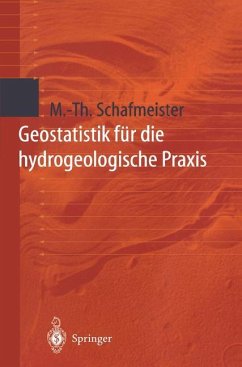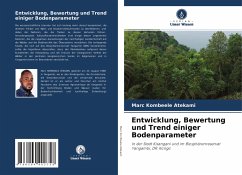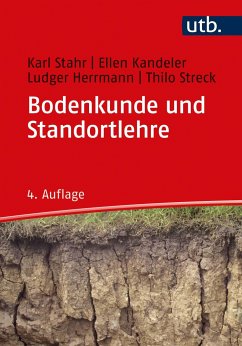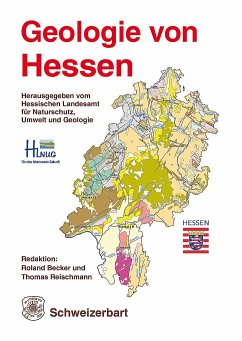
Ein Vergleich ausgewählter Bodenprofile skandinavischer Standorte

PAYBACK Punkte
0 °P sammeln!
Bachelorarbeit aus dem Jahr 2009 im Fachbereich Geowissenschaften / Geographie - Geologie, Mineralogie, Bodenkunde, Note: 1,3, Ludwig-Maximilians-Universität München (Department für Geogrphie), Sprache: Deutsch, Abstract: Four soil profiles from coast areas in Scandinavia were examined. Three of them developed under forests and one soil under grass habitat. The parent material of positions under wood is a deposit of granite, and acidic gneiss. From the coarse grained, highly skeletal parent material very acid, sandy, shallow soils develop. The occurrence of organic matter accumulation and d...
Bachelorarbeit aus dem Jahr 2009 im Fachbereich Geowissenschaften / Geographie - Geologie, Mineralogie, Bodenkunde, Note: 1,3, Ludwig-Maximilians-Universität München (Department für Geogrphie), Sprache: Deutsch, Abstract: Four soil profiles from coast areas in Scandinavia were examined. Three of them developed under forests and one soil under grass habitat. The parent material of positions under wood is a deposit of granite, and acidic gneiss. From the coarse grained, highly skeletal parent material very acid, sandy, shallow soils develop. The occurrence of organic matter accumulation and decomposition at the surface, together with translocation of organic material, iron and aluminium in both organically bound and inorganic forms indicate the operation of podzolation. High organic matter accumulation and forest litter demonstrate harmed chemical alteration and clay mineral regeneration. In case of microclimatic favour positions the cambisol develop could be possible on soliflucated parent material. However, the fluvisol is generated on marine sediments. All soils are aged between 6000-10000 years (ELLIS & MATHEWS 1984, MELLOR 1987). The nemo- to south-boreal climate indicates a high intersection of annual precipitation, especially at the west coast of Norway. The high acidification in soils under forests takes influence in functions of soil buffering. This process involves a change of naturally soil functions. The resulting ecological problems are already known from the north boreal region which is even more affected (BÉRDEN et al. 1987, HAUHS & WRIGHT 1990, VENZKE 1990).Problemstellung und MotivationObwohl die ökologische Erforschung Skandinaviens auf eine reiche Tradition zurückblickt gibt es nur wenige wissenschaftliche Arbeiten, die vergleichbare Standorte untersuchten. Die vorliegende Arbeit soll folgende Fragen beantworten:Welche Böden bilden sich unterhalb der natürlichen Waldgrenze an küstennahen Standorten, und welches sind ihre physikalischen und chemischen Eigenschaften?Wie und in welchem Maße beeinflussen die Standortfaktoren die Bodenbildung?Zur Beantwortung dieser Fragen wurden vier Bodenprofile küstennaher skandinavischer Standorte untersucht.













